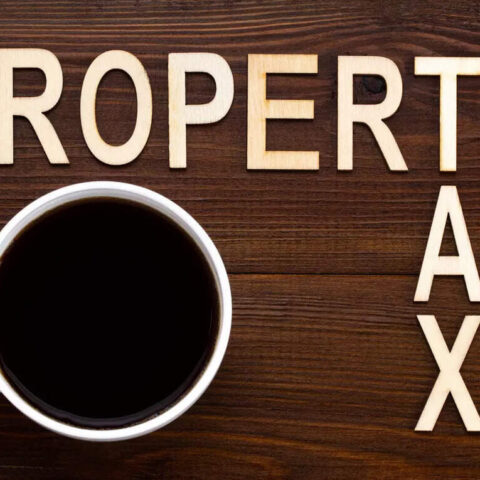Last year won’t be one that most people in the real estate industry will look upon fondly despite its strong longer-term fundamentals.
Investment activity and sentiment were low, interest rates were high and there still wasn’t a lot of clarity about when they would come down. Economic signals were mixed and volatility in the bond market was paralyzing the transaction market.
“If we fast forward to today, it feels like there’s more optimism,” said Hazelview Investments managing partner and head of real estate Michael Tsourounis as he kicked off a discussion at the recent Canadian Apartment Investment Conference at the Metro Toronto Convention Centre.
Tsourounis asked the four panellists for their investment insights from the recent past, the present and into the future.
Some dark times in 2022 and 2023
Michael Betsalel, executive vice-president of JLL Capital Markets and multifamily investment, joined the industry in 2005 and said that, until early 2022, it was “a bull market with a couple of bumps along the way.” The challenge through much of 2021 was managing all of the transaction activity, as there were $12 billion in multifamily deals in Canada.
Activity virtually came to a halt in 2022, however, as vendors still had high book values and nothing traded. Deals started to happen again in the second half of 2023, although they took a lot of communication and structure to close.
“Where are we today?,” Toronto-based Betsalel asked. “We’re doing deals. Those book values have come down. The fundamentals are strong, but the process has changed.”
Jandip Deol, Avison Young’s Edmonton-based principal of multifamily, said many of the larger players in the market went quiet in 2022 so his company started talking to retail developers that had expressed interest in the asset class and managed to sell a few properties to them. It also had some success by talking to potential investors in Saskatchewan and Manitoba.
“When things like that happen,” Deol said of the 2022 slump, you’ve just got to go off the map and figure out a solution.”
Deol said more buyer groups from across Canada are now showing interest and investors are diversifying their Edmonton portfolios to include multifamily.
Mark Goodman, principal of Vancouver-based Goodman Commercial, said his office brokered 39 transactions valued at more than $500 million in 2021 before it was impacted by rising interest rates. Activity started to pick up again later last year when the overnight rate ended its upward climb.
Things have picked up this year
“There was more optimism and our office did a flurry of sales,” Goodman recalled. “We had another huge flurry of sales just before the end of June 2024 due to the capital gains deadline. We sold five properties worth about $90 million within one week.”
Goodman had a 69 per cent increase in volume and a 59 per cent increase in transactions in the first six months of this year compared to the same period in 2023. The company’s sales volume has reached $1.1 billion and Goodman is optimistic about 2025.
“When a lot of experienced buyers were pulling out of the market, more inexperienced buyers were coming in,” said Thierry Samlal, executive VP of Montreal-based PMML.
“Now you have a market with experienced buyers, family offices back on the map and non-experienced buyers that did deals that are going to be comparables for the next few months. So we’re in the process of having a lot of buyers on the market.”
Sellers are coming back more slowly, Samlal added, so he’s expecting heavy deal volume that includes existing older assets and new builds. He anticipates prices rising by 20 to 25 per cent.
“There’s an appetite to acquire and I think we’re going to see more competition than we’ve seen in the past 12 to 18 months,” Betsalel added.
Deol said the multifamily market has “been on fire” this year, noting that an apartment building in an Edmonton bedroom community received 11 offers from qualified buyers.
“It’s tough right now to find product,” Deol said, “and if it comes to market, there’s typically a multiple offer scenario and we’re very close to list (price), or usually above list.”
“The bid-ask spread is decreasing and we’ve got about a dozen proposals on the go right now,” Goodman said, though he doesn’t expect any material changes in values. “We’ve got everything from wood frame to concrete highrise to new purpose-built to development sites that we’re working on right now.”
Need for new housing
Canada has a housing shortage and it’s estimated that 3.5 million new homes have to be built by 2030 to help restore a measure of affordability.
The Canada Mortgage and Housing Corporation’s MLI Select multi-unit mortgage loan insurance product focused on affordability, accessibility and climate compatibility has incentivized more construction.
“You can essentially start construction on a project with your land equity, which is great,” Deol. said “From a buy perspective … most of the deals that we’re seeing are typically between seven and 11 per cent equity in. For anyone that’s looking to get assets under management or increase their footprint in Alberta, it’s a great way to to get new product.”
“If you need to build anything right now in Vancouver, in return for density you’re going to have to have 20 per cent below market affordable housing and often ground-floor retail,” Goodman said.
Goodman said dozens of rezoning applications have been submitted for new purpose-built rental buildings along Vancouver’s Broadway corridor that would enable several 20- to 25-storey apartments to be built, but entitlements take years to obtain and it could take from five to seven years before any of this new product comes to market.
Samlal cautioned there could be further increases in construction costs, supply chain issues and problems in finding enough labourers that could curtail building all of this needed housing.







